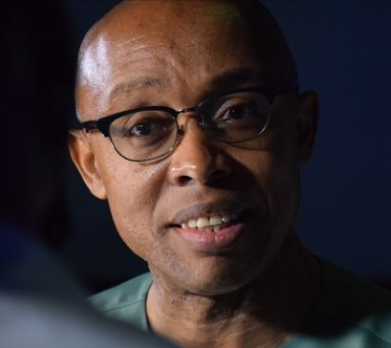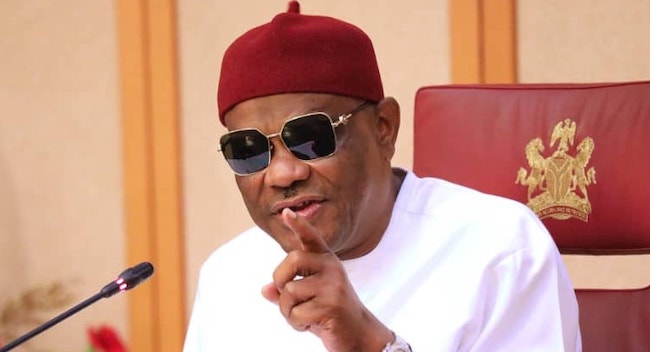“A historian ought to be exact, sincere and impartial; free from passion, unbiased by interest, fear, resentment or affection; and faithful to the truth, which is the mother of history the preserver of great actions, the enemy of oblivion, the witness of the past, the director of the future.” Bhimrao Ramji Ambedkar
History is endangered in Nigeria and those who research or teach it as their vocation are at risk of extinction. Every opportunity to celebrate or learn from history or historians in a country like this, therefore, is not one to be spurned.
When the Usman Dan Fodiyo University (UDUS) in Sokoto, north-west Nigeria, announced that the latest instalment of its Inaugural Lectures would engage with the universe of history, a coincidence of three factors guaranteed them more than the usual bandwidth reserved for such events.
First, this was advertised as the 50th Inaugural Lecture in what is effectively the 50th year of the university. UDUS began life in 1975 as one of twelve federal universities established by the military in the aftermath of the Nigerian Civil War with a mission to disperse the frontiers of enlightenment across the country. Usman Dan Fodiyo after whom it is named was the founder of the Caliphal system and a scholar of some repute.
Second, the subject matter of the Inaugural Lecture had audacity written all over it. The framing was: “The Igbo Factor in the History of Inter-Group Relations and Commerce in Kano.” It departed from the usual preoccupation with academic comfort levels and promised a peek into delicate recesses of the Nigerian narrative.
Third, this was only the second Inaugural Lecture from the History Department of UDUS and the lecturer was a man who had spent over 43 years teaching and researching Nigerian history. He had every right to be taken seriously. Moreover, this was the teacher of Mahmood Yakubu, the Chairman of the Independent National Electoral Commission (INEC), no less. Here was an opportunity to find out whether the legend of the INEC chairman as an alchemist of fantasy was a product of nature or nurture.
By the time he stepped up to the podium in Sokoto for his lecture on 5 September, 2024, Professor Ahmed Bako was guaranteed an audience like none that he had encountered in nearly four and a half decades as a university teacher. A full auditorium in the university was more than outstripped by the remote audience.
The esteemed lecturer began by acknowledging that his subject matter was one steeped in “extreme prejudice and emotions”, particularly, “in recent years when a lot of stories are being told or rumours being peddled on Igbo Community in different parts of the country.” Far from fidelity to his promise to put matters “in proper perspectives” (sic), the lecturer wasted no time in fulsomely embracing the prejudice.
Growing up, he confessed, he “heard a lot of frightening stories about Igbo as wicked people who killed Sardauna.” On the evidence of his rendition, this tragedy was not the origin of their wickedness; it was proof of it.
According to Professor Bako, the Igbo in Kano are a “diaspora”, which calls into question any claims they may have to Nigerian citizenship. The pioneer Igbo cultural organization in Kano, the Igbo (State) Union, was both clannish and “extremely militant” and the contemporary pan-Igbo socio-cultural institution, Ohanaeze Nd’Igbo, is a “separatist” organization.
He was only warming up. The Igbo, he theorized, “embarrassed” (sic) education “all with the hope of eventual domination of the country; not necessarily for developing it for the benefit of the nation.” Deploying “ethnic solidarity”, he claimed, the Igbo “gradually marginalized or even displace (sic) large number of Hausa traders.”
Far from an Inaugural Lecture, this read very much like a 21st Century Bill of Attainder. There was hardly a constructive contribution to be gleaned from his study of or occasional interaction with the Igbo. Even the Igbo Union School built entirely from community resources of the Igbo and launched in 1959 was dismissed as “exclusively meant for the Igbo, the school had only 9 non-Igbo students.”
In the absence of any organizing theoretical or philosophical framework, the lecture read like a long-suppressed eruption that finally found an occasion to occur. Its context, sub-text, and texture belied its ostentatious claim early in the text that it was “purely historical not political. It is base (sic) on Archival (sic) and field research.”

Blinkered by prejudice, Professor Bako could not muster the curiosity to interpret his own evidence. Earlier in his lecture, he acknowledged “the colonial residential segregation policy that established different enclaves for migrants”, which effectively binned the Igbo in Kano into an ethnic ghetto in Sabon Gari. He could not have been so bereft of imagination as to be unable to discern it was ethnic discrimination that forced the community to build the Igbo Union School. In striving parents who sought to afford education to their children who may otherwise have missed out on it altogether, all he had the capacity to see was ethnic malevolence.
Professor Bako trotted out hackneyed tropes with a recklessness that dispensed with evidence, authority or comparison. For instance, he claimed that “searching for economic power and dominance make the Igbo to be desperate and aggressive. Desperation is what make (sic) them to not only be disliked by host communities in several of the areas of their dominance in Northern Nigeria but to pushed (sic) some young Igbo into criminal activities.” In support of this claim, he provides neither archival material nor evidence from anthropology, criminology or comparative criminal justice research. It was difficult to believe this was an Inaugural Lecture.
In Professor Bako’s fantastic world, these Igbo are an ethnic group in perpetual conspiracy. In reality, he comes across as projecting his own ethnic self-image onto the Igbo, reflecting at the same time the crisis of a country that cannot make up its mind about this ethnic group. The classic Nigerian trope about the Igbo is of an ethnic nationality almost congenitally incapable of unity. In Professor Bako’s world, however, all they do is conspire on the altar of ethnic solidarity and before the god of domination.
Blinded by this, the professor could not imagine alternative explanations outside his conspiratorial theory of Igbo domination. The lecture mentions “Igbo” 427 times and contains 16 references to words “dominate”, “dominance” or “domination” but finds no citation, authority or evidence to support its connection between Igbo and domination.
The only currency it trades in is homogenization. Magically, it deploys “Igbo” as singular, plural, and collective. It’s a sorcerer’s epic.
Professor Bako’s history of Igbo interaction with Kano coincides rather conveniently with the onset of colonial urbanisation in Nigeria. The text is too lazy to even speculate as to whether or not there was any interaction before this time. If he had allowed himself to think outside the frame of homogenized Igbo identity, the professor may have realized that different Igbo communities came to education (and to Kano) at different times.
The Onitsha on the banks of the Niger, for instance, were relatively early recipients of Western education. Their neighbours in Obosi came to it a little later and pursued it aggressively not to dominate Nigeria (a notion that was alien to them) but to compete more equitably with the Onitsha. The idea that the Wawa, the Aro, the Ngwa and the Onitsha (all Igbo sub-groups) conspired to head to Kano to pursue domination makes meaning only to someone who is willfully illiterate about Igbo inter-group relations.
In 2012, an evidently unwell Emir Ado Bayero traveled to Enugu to attend the funeral of Emeka Odumegwu-Ojukwu, whose leadership in the Nigerian Civil War has Professor Bako throwing hissy fits. In January 1966, Ojukwu was the Brigade Commander in Kano who saved Bayero’s life and precluded Chukwuma Nzeogwu’s subaltern, Captain Ude, from coup operations in Kano. Ojukwu was himself fluent in Hausa and may indeed also have fathered a child in Kano. None of this merited acknowledgement in Professor Bako’s elevated piece of pitiable hatchetry. The students who endured him for over four decades deserve our thoughts and prayers.
One thing is clear, however, after surviving Professor Bako: the provenance of this current INEC Chairman is settled.
By Professor By Chidi Anselm Odinkalu
- Chidi Odinkalu is a lawyer, Human rights activist and a teacher, can be reached at chidi.odinkalu@tufts.edu




